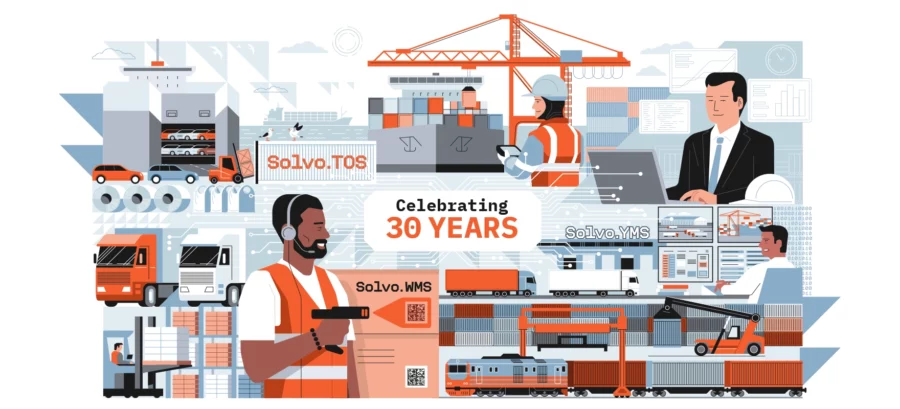How to make the right choice?
We often hear about mindful consumerism when it comes to personal shopping. But the same principle applies to business decisions — especially those involving investments in automation and high-tech solutions. Without a thoughtful, well-balanced approach, businesses risk either overpaying for underwhelming results or using a microscope to crack a nut.
Just think of a warehouse purchasing barcode scanners for a cold storage facility, only to discover they can’t function below -5°C. Or a company installing a pricey conveyor system that’s been running at only 20% capacity for three years because demand was overestimated. These costly mismatches happen more often than you’d expect.
So, how can you choose Auto ID equipment and IT systems that truly support your operations and bring ROI? Solvo’s system integration experts share their field-tested recommendations.
Three Rules for Smarter Automation Investments
Drawing on over 25 years of experience, the Solvo team highlights three golden rules when selecting Auto ID technology and IT systems:
- Define the end goal — What problems will this solution actually solve?
- Understand your processes — Know your operations inside and out.
- Design your infrastructure — Ensure IT and physical infrastructure align.
At first glance, these principles sound simple. But let’s take a closer look.
Rule #1: Know What You’re Solving For
It’s easy to get swept up by technical specs and trending features — but every purchase should solve a specific operational challenge. Imagine buying a bicycle for city commuting, then trying to use it on a mountain trail. The same logic applies to IT infrastructure.
You must consider how and where the equipment will be used. And for that, you need to truly understand your business processes.
Rule #2: Deep-Dive Into Operations
Here’s a story from Solvo’s practice:
“A client approached us to help select a data collection terminal. Based on the specs, we found an excellent model — but we soon discovered their warehouse was a cold storage facility, and staff wore thick gloves. The terminal’s small buttons weren’t glove-friendly. It would’ve slowed productivity and increased errors. Because the client understood their workflow, we selected a more ergonomic device with large buttons, perfect for their environment.”
This example shows why understanding daily routines and limitations is key — even a small oversight can cause major inefficiencies.
Rule #3: Map Your Infrastructure
Business processes don’t exist in a vacuum — they’re tied to physical space. That’s why it’s important to survey your facility and study all communication, power, and structural features before launching an automation project.
“You might have open space, but only detailed planning will reveal hidden constraints — like a load-bearing wall where you expected to lay cables. That’s why we always recommend a preliminary site survey,” says a Solvo expert.
Even if your site is fully operational, reviewing technical documentation can uncover key factors — from socket placement to safety requirements — that affect the installation and functionality of Auto ID systems.
A Step-by-Step Approach to IT Planning
To get the most from automation, break complex tasks into smaller, clearly defined steps.
Let’s say you want to implement contactless access for drivers at your facility. Here’s how you can outline that workflow:
- Pre-registration – A visitor submits an application and provides documentation.
- Check-in at the gate – Security verifies documents and ID.
- (Optional) Safety procedures – If relevant, this includes safety briefings and PPE.
- Site visit – The visitor proceeds to their assigned location.
Each step can be further broken down into sub-processes — and each may require a different IT solution. Once the workflow is mapped, you’ll know whether your terminals need to be placed outdoors, how many are needed to avoid queues, and what environmental protections are required.
The Bottom Line
Choosing IT systems or Auto ID equipment should always be the last step, not the first. With the right roadmap — and a partner who understands your operations — you’ll avoid costly mistakes and build a truly efficient solution.
The Solvo system integration team is always ready to support you with expert advice and tailored technology.






